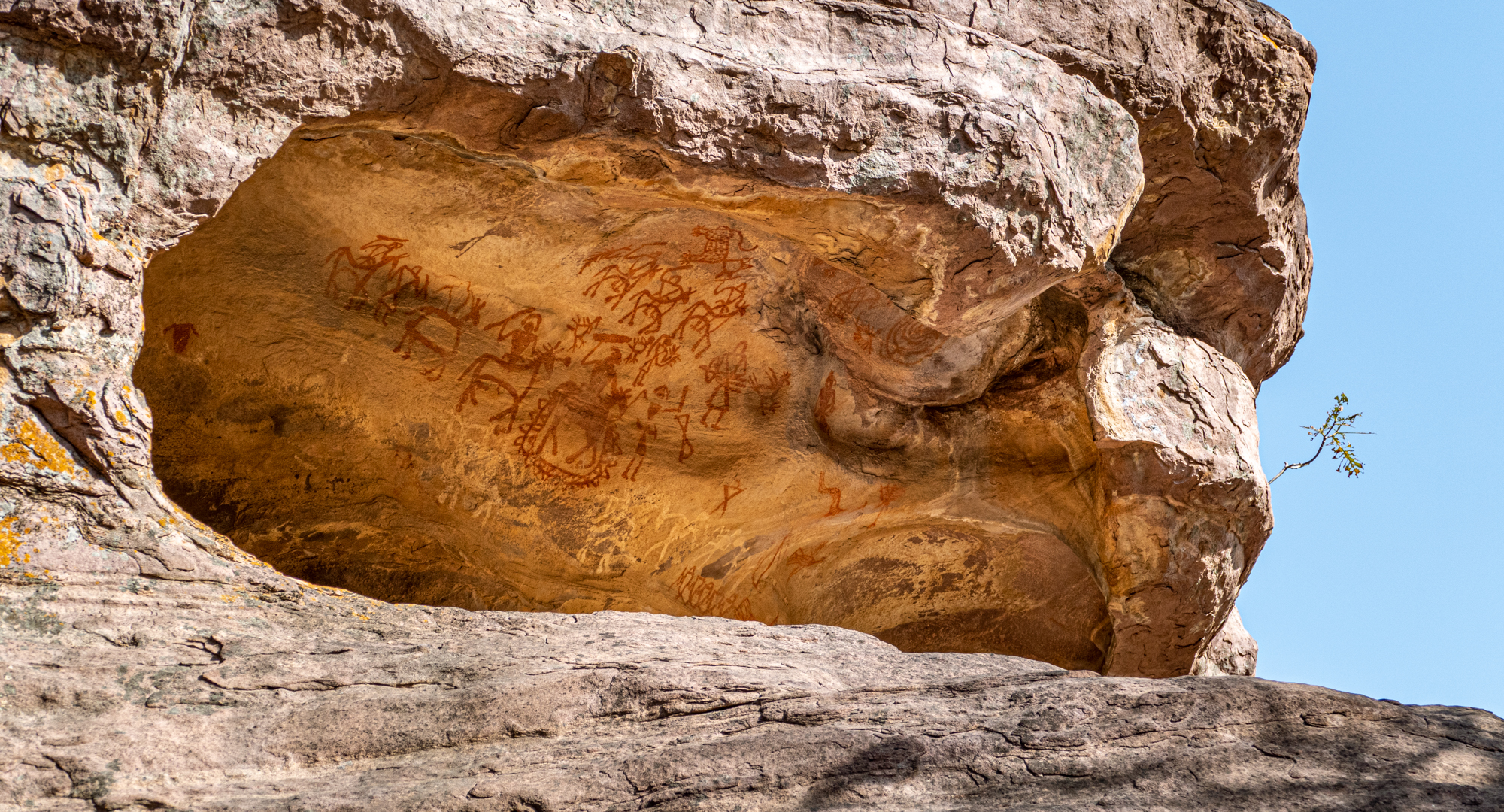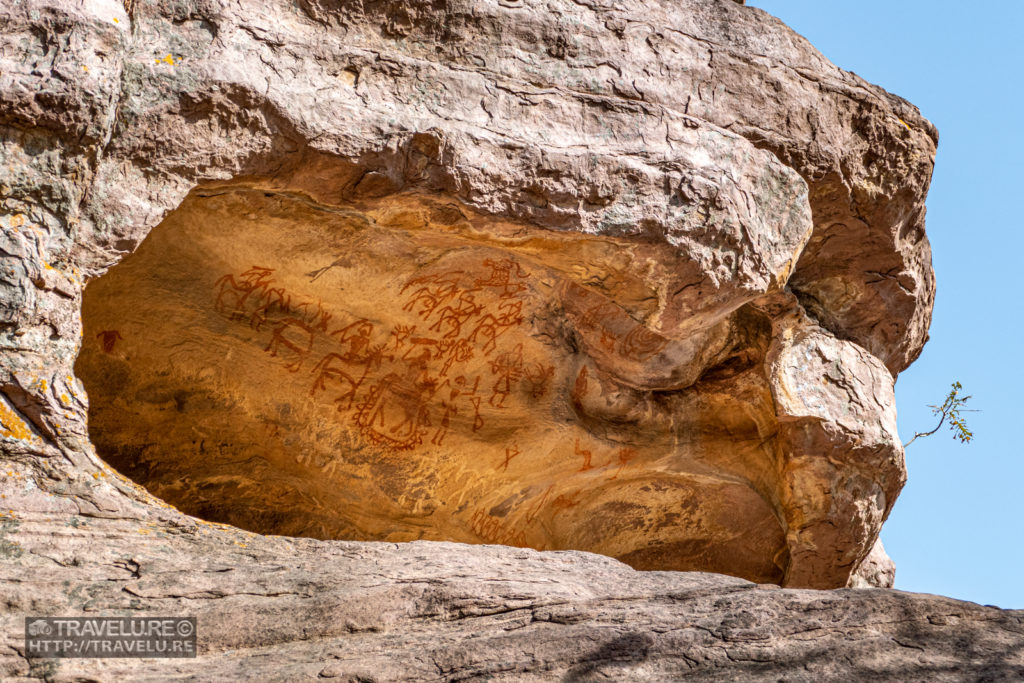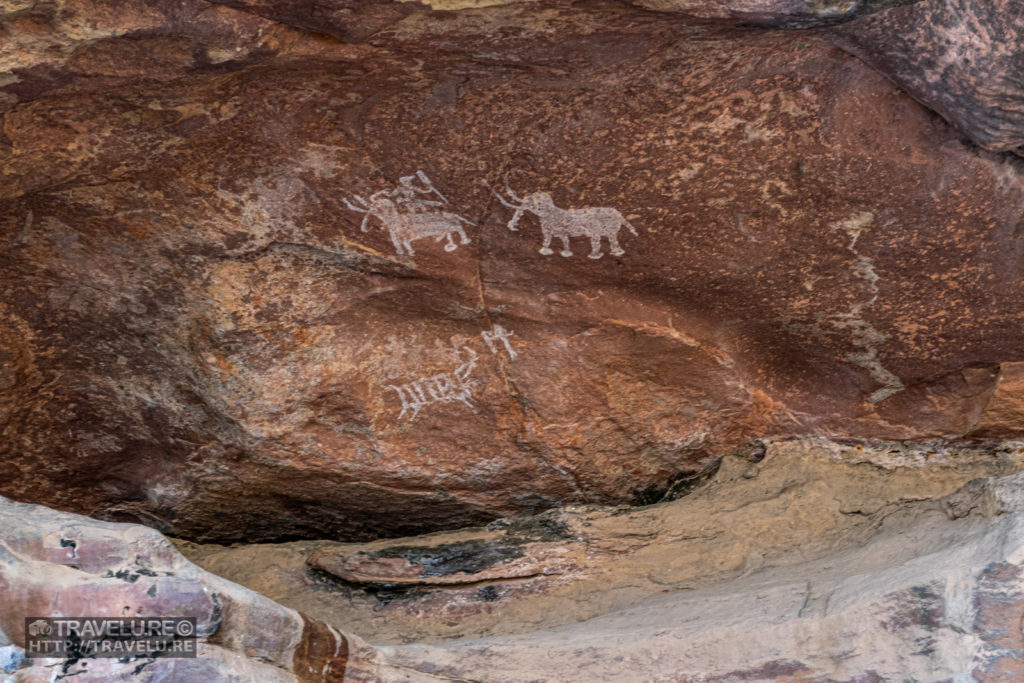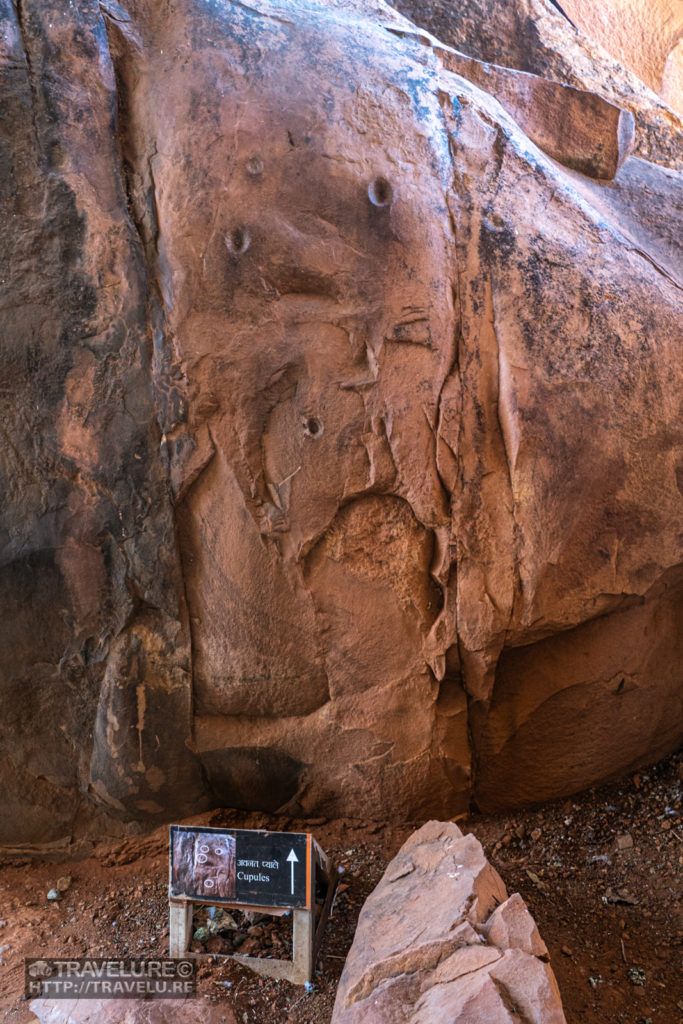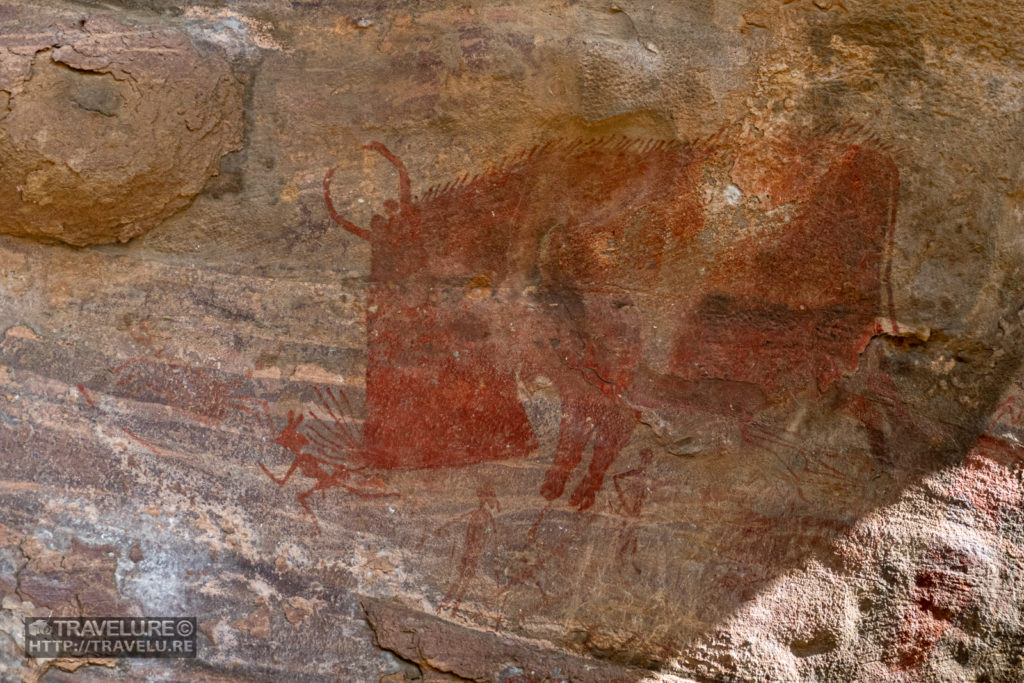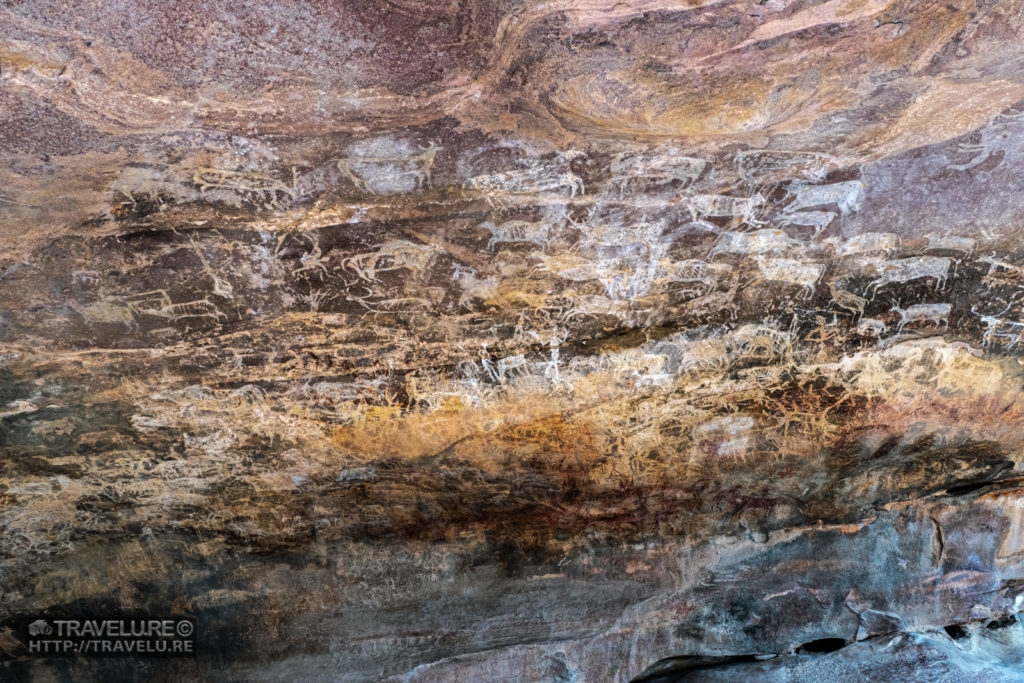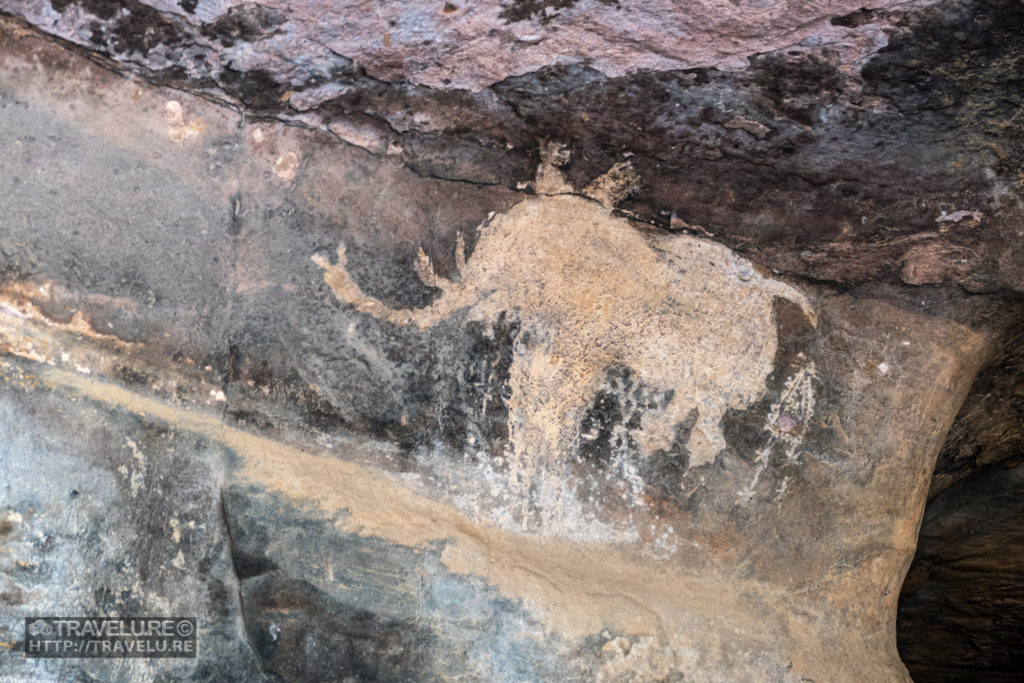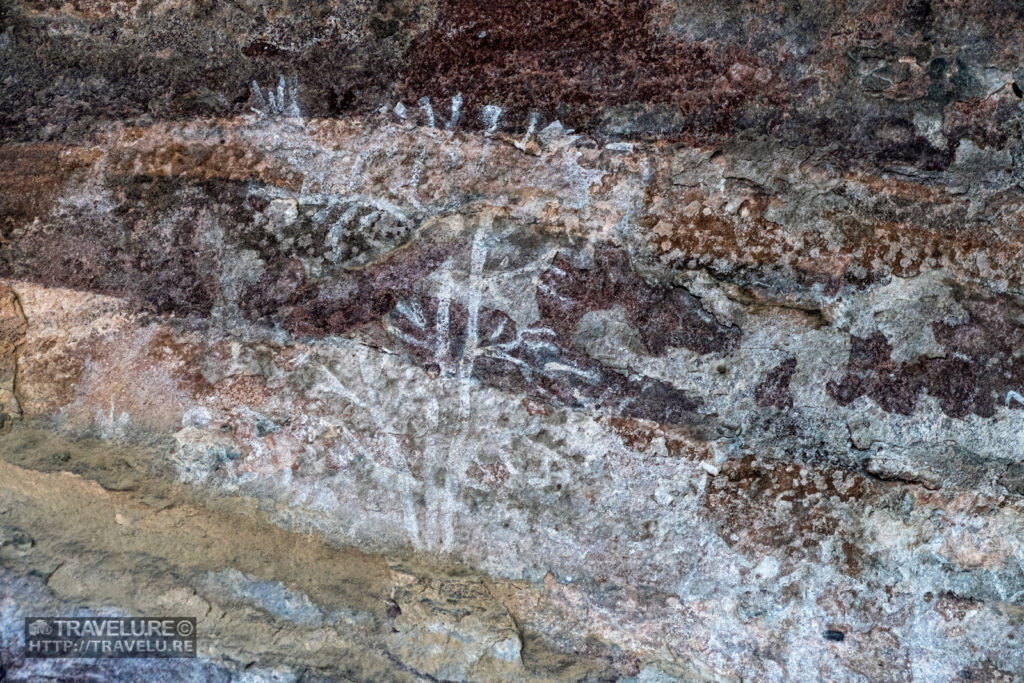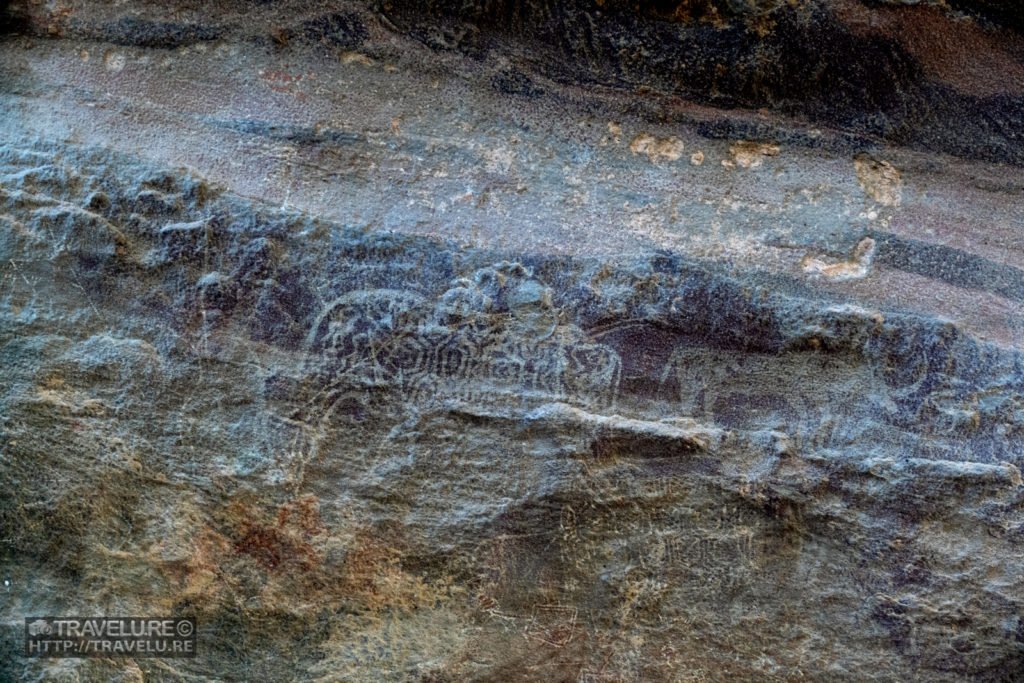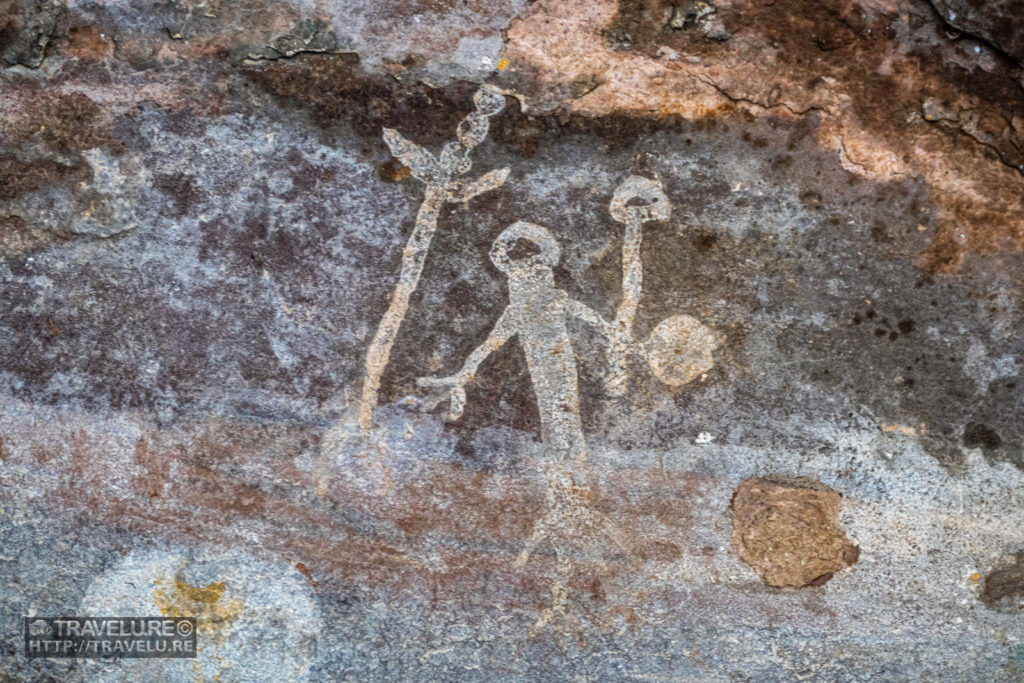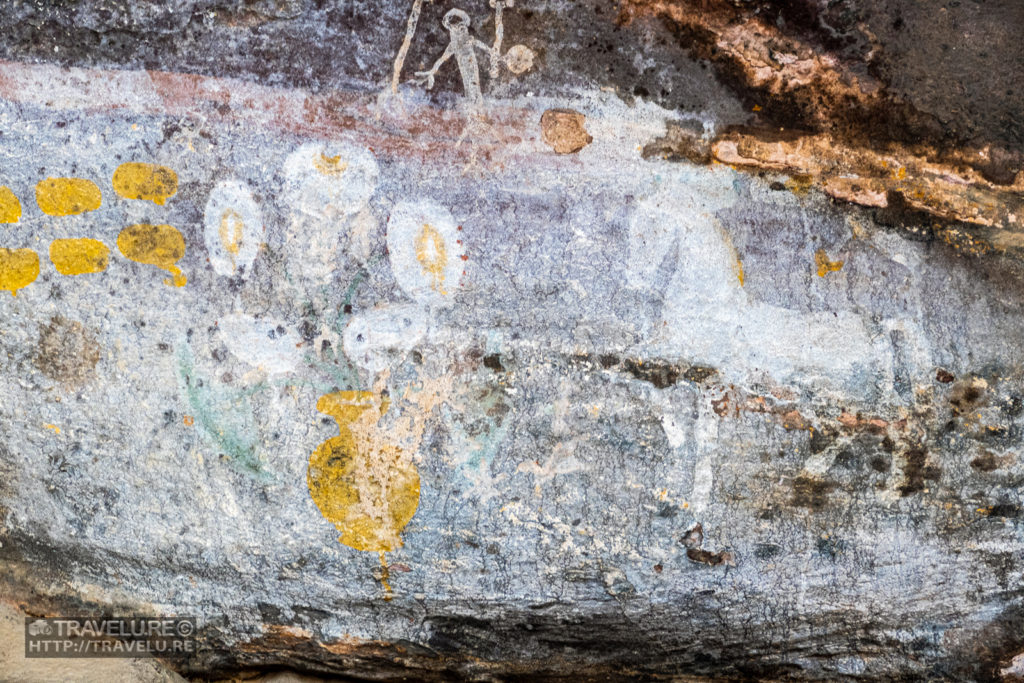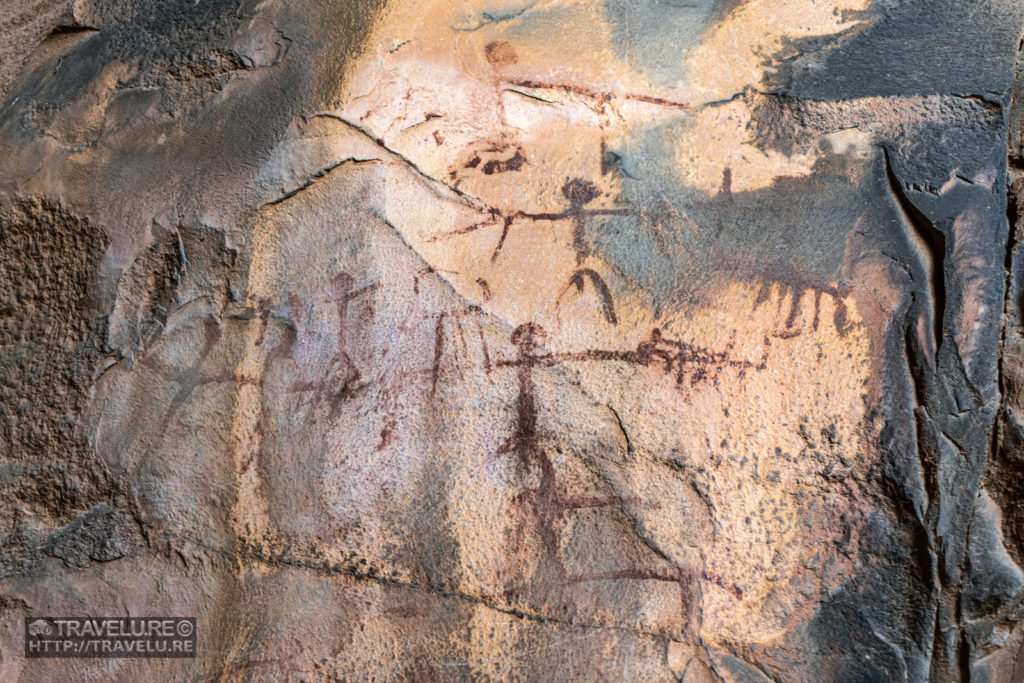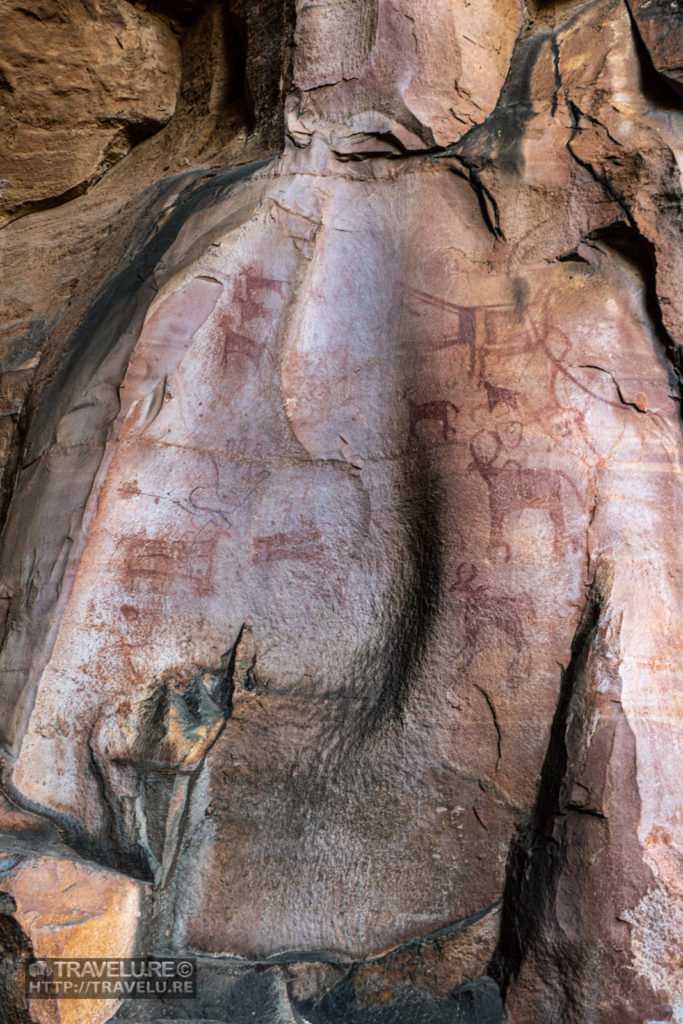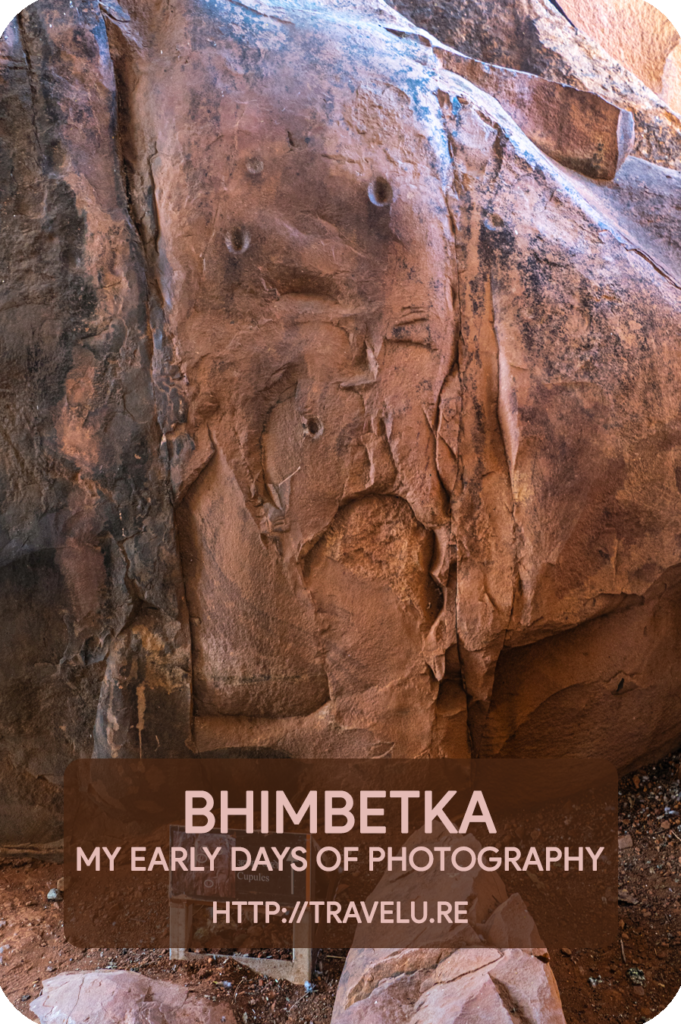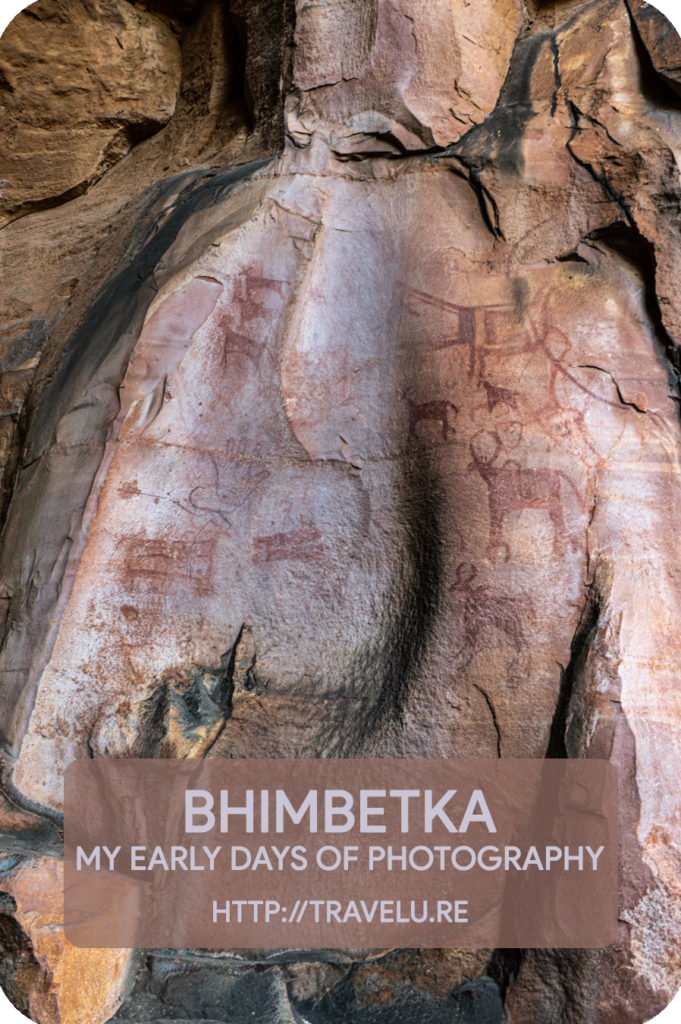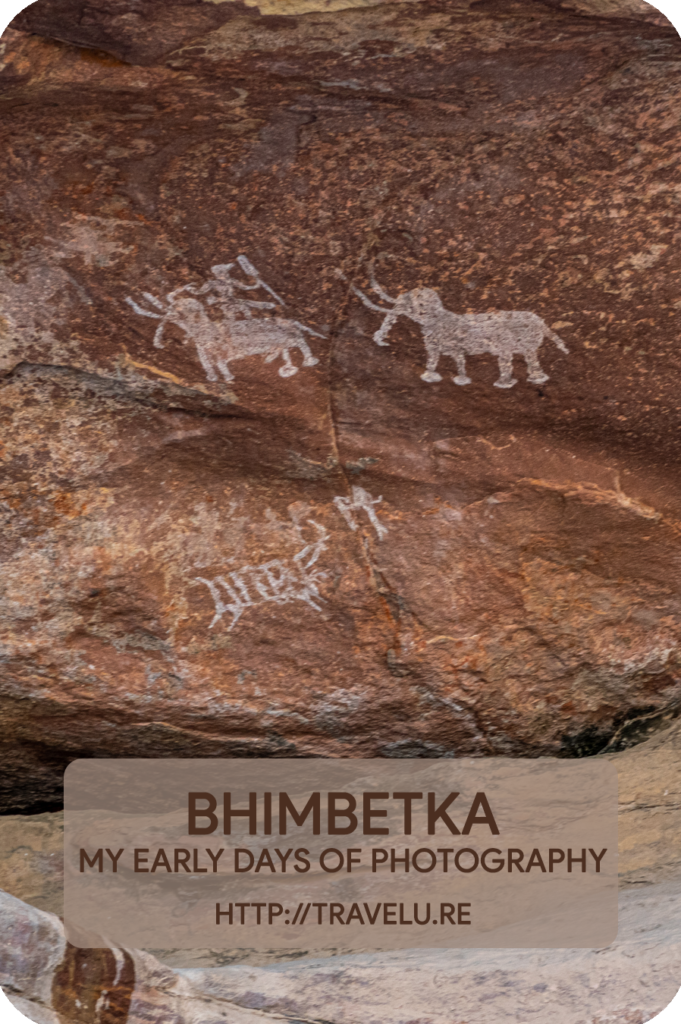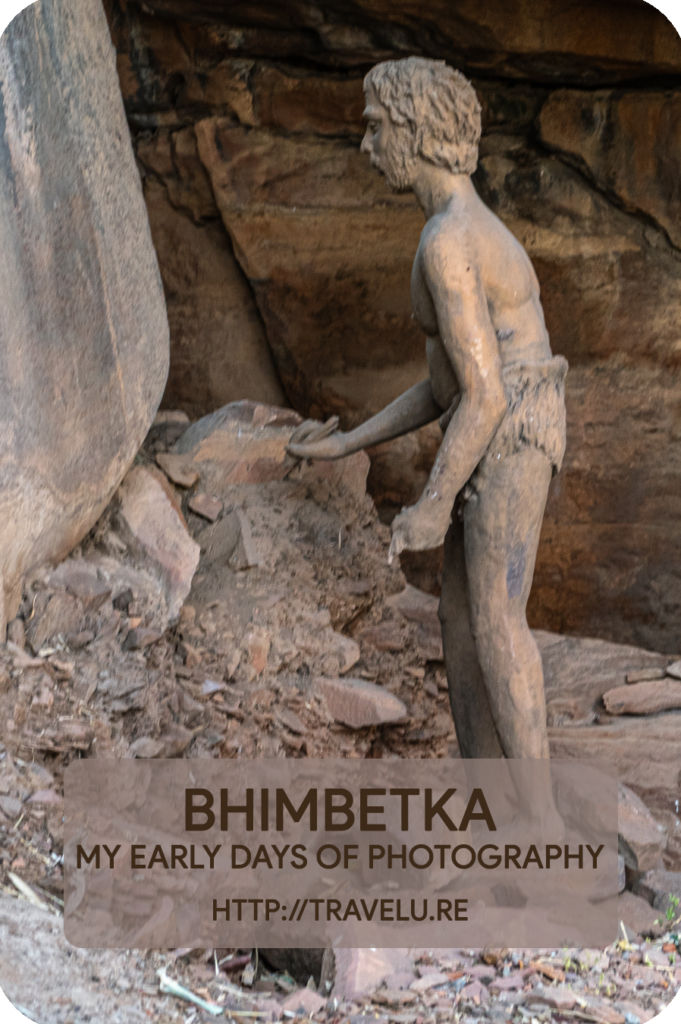Bhimbetka: My Early Days of Photography
Photography = drawing by light. Embark upon this journey as I time travel through Bhimbetka Rock Shelters by taking the liberty of using the above-cited definition of ‘Photography’.
Settlers and nomads from different eras have painted at these Rock Shelters. Some as recent as 800 years ago, while the others dating back to over 5,000 years. Minor wonder they have declared these rock shelters a UNESCO World Heritage Site.
This article has also appeared on Times Passion Trails Blog.
Time Travel
It was 793 years ago. I wanted to get away from the unceasing mundane fights and hunts of my species. I took off in search of a quiet place that could provide an outlet to the artist in me.
As I walked up the hill and stood in front of the gravelly pathway that led to a cluster of rocks, those rocks looked inviting. Unable to resist, the explorer-me strode up to the massive formation.
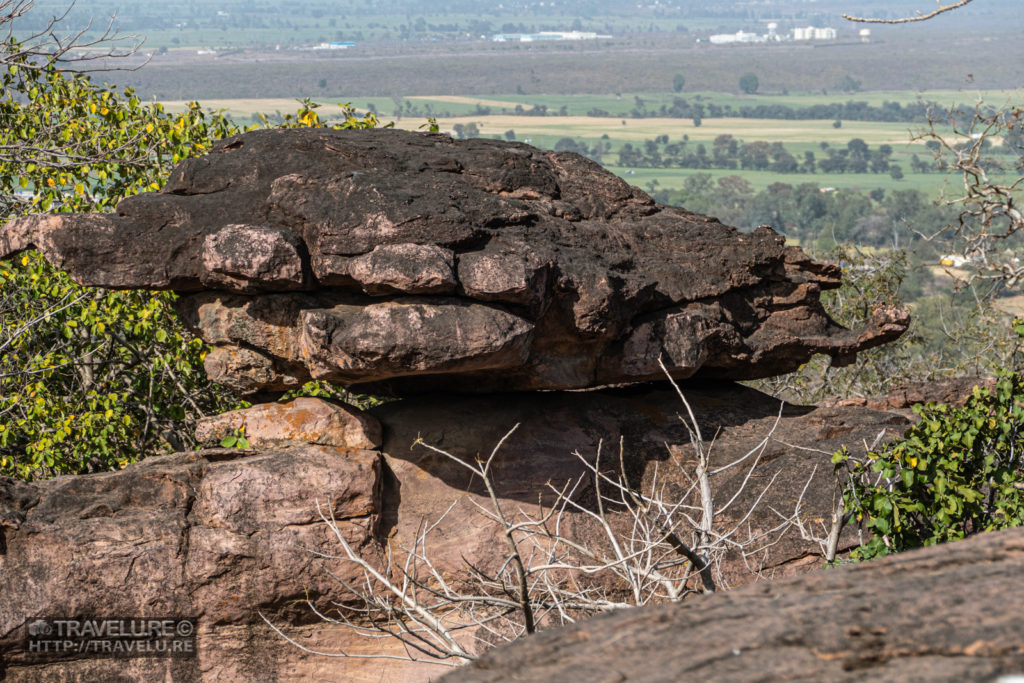
Once there, trudging up and finding myself at a vantage, I gazed down. I found the vast greens and browns of the plains below underlining the blue skies. Here’s when I spotted a giant tortoise. Upon careful observation, I found it to be yet another nature-crafted rock wonder.

The creative-me loved the view. I decided it would be home for some time. As I ventured around the narrow burrows carved by times in those sandstone rocks, I realised those had turned into ortho-quartzite. Little did I know then that they would later call this place Bhimbetka Rock Shelters.
I placed my leather satchel on a ledge in a cave and pulled out my cleaver and axe. And I heard the sinister sibilant sound produced by a slithering snake. As I threw my cleaver hard, I heard a reptile slinking away.
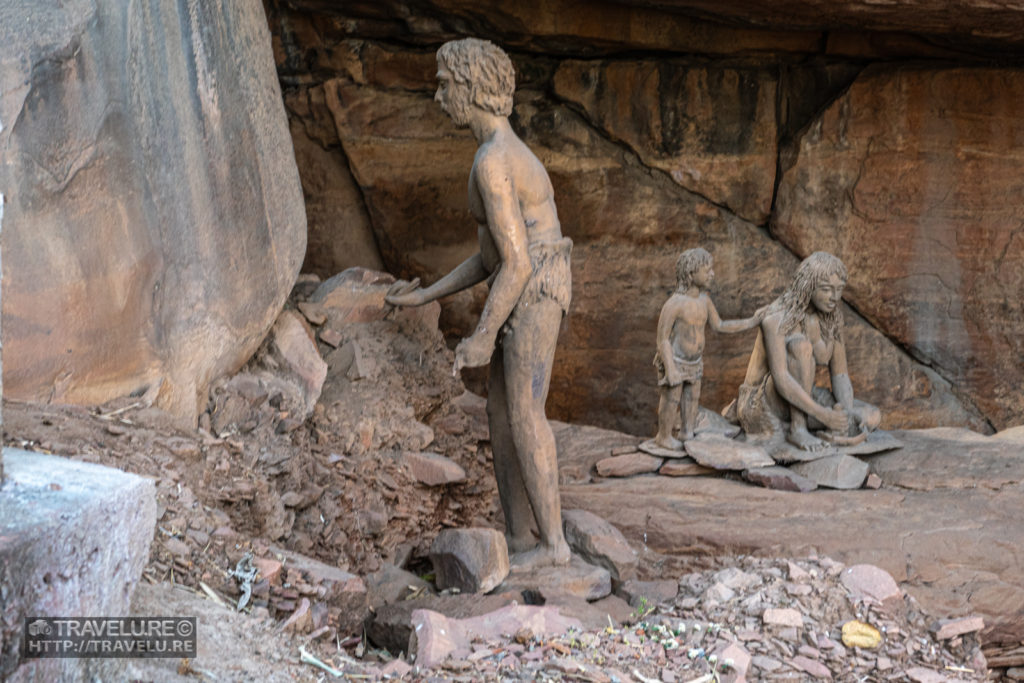
Zeroing in!
It would be dark soon. I stepped out to scrounge around for food. Nature had bent the trees double with fruit. I took what I needed and prepared to retire. The connecting cavity between two caves seemed the best option as it gave me an alternate exit if danger arose. That will be my bedroom for some time.
At the crack of dawn, the sun rays penetrated the cave opening and bathed me in a luminous glow. After lazing around for a while, I galvanised myself into action.
Morning routine, followed by a quick hunt and breakfast, and I was all set! Caves would not get any light after sunset, so my drawing had to happen when there was light!
Getting down to it!
A closer look and I realised many before me had found similar inspiration here and had stopped by to create works of art over the centuries. There were a plethora of artworks from the past in the caves around.
The colours used most often were white and red; though in some rare cases, I could spot a smattering of yellow and green. I favoured red. And that’s what I would use.
The earth around provided enough ingredients for my paint requirements, and the tree extracts made sure the paint would last. Collecting all I needed, I made my way to my chosen studio.
Bhimbetka – My Early Days of Photography
For the next few years, my routine was to get up, gather food, find a place in the cave cluster where I would draw by light, take breaks whenever I was thirsty and go across to the watering hole. Then work more, and retire when the light would fade or when I would feel tired, whichever was earlier.
Soon enough, I found my work embracing that of my unknown ancestors. I harmonised my drawings with the themes painted before me. I stayed with drawing lifestyle – hunting, fighting, gathering, taming, riding, etc.
As I grew old, I could not paint much. I knew soon enough, a day would come when I may not get up anymore. These last few days, I went around admiring what existed, what I had created and embellishing those that needed some touch-up.
One fine day, I slept. I slept for a long time – in fact, for 781 years. When I woke up, I realised I was still there; except instead of walking, I had arrived on a bus. Instead of a cleaver and an axe, I was carrying a Leica V-Lux Typ 114. The rock formation seemed to resemble a dinosaur.
Back to where it all started!
Now, instead of using cave rock as the surface, I was using a silicon sensor, but the photographer in me still lived. I did what a photographer must and shot my creations painted 8 centuries back, determined to share my work with the world all over again. My time-travelled mind knew the place was already a UNESCO World Heritage Site. Bestowed upon it as a site of continuous man-landscape interaction over many millennia.
Reaching here from Bhopal as a participant in Times MP Passion Trail, our group will soon proceed to Sanchi. That would be two UNESCO heritage sites in a day! A marked departure from the times 8 centuries ago when I hung around this place for a lifetime.
You could also photograph here. You just need to carry your camera, get to Bhopal by rail or by air, take transport down to Bhimbetka, which is a mere 45 kilometres away and go right ahead! Do that soon as some of these paintings are fading faster than the haze on the horizon in these post-COVID19 times.
